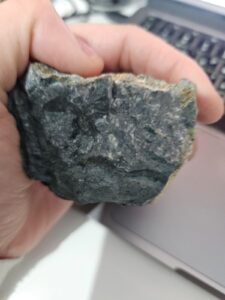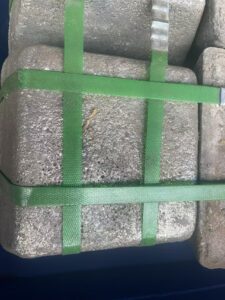South Africa has seen some of its highest unemployment rates yet, and a concerning general level of apathy when it comes to the job market and the future. South African companies showing steady growth while having a solid global footprint, now become important to the future of the country.
One such company is commodity trading firm Pelagic Resources Pte Ltd.
Pelagic Resources came into being in South Africa in 2016, quickly securing its first mandate to market 400,000 tons of specialty ore to global markets. Today they have their headquarters in Singapore with offices in South Africa, Zimbabwe and China. They have steadily nurtured strong relationships with suppliers, banks, state owned enterprises, traders and end-users, creating a best-in-class supply chain solution for their global client-base.
Southern Africa is extremely fortunate to have abundant and rich natural resources at its disposal, but, as for any business, it is the know-how and service-delivery which makes a great company. Pelagic Resources’ global presence and commitment to ESG principles, community development, its sound management and operations teams and strong leadership at the helm, have it set to be fierce competition for the likes of Glencore, Noble and Traxys.
Solid leadership is everything
Managing director Tom Baring has extensive experience in commodities and metals trading and has spent the last 16 years living in emerging markets. He moved from London to Russia and after having lived there for five and a half years he subsequently moved to the Democratic Republic of Congo to look after a portfolio of assets, some within the natural resources sector and some within the local real estate market. Upon moving from Congo to South Africa, he was invited to join trading startup Avra Commodities Pte Ltd – where he helped the company source a metals business, giving Avra an entry point into the African continent and further diversifying Avra’s commodity offering.
Baring’s keen understanding of the industry and its environment, coupled with strong business acumen, lays the foundation for the steadiness with which we have seen Pelagic Resources develop and grow.

The namesake
Pelagic’s name originates from the team’s approach, akin to the oceanic fish that live close to the water’s surface. According to the CEO “its not about what you say you can do, but rather what you demonstrate you can do through action.”
Steady and strong, and growing organically.
“For a new venture, for an entrepreneur, in commodity markets, to start a trading platform with limited capital is challenging. The majority of refined markets are fairly well covered and in effect to compete it comes down to the cost and flexibility of your capital, not necessarily the availability of resource” says Baring, “within specialty raw material markets it’s feasible to start a new business with relatively limited resources, capital or otherwise, and build the business organically based on consistent performance, which is what Pelagic has done and continues to do.”
Specialty Ores
South Africa and Zimbabwe have around 87% of the world resources in terms of chrome ores, and so there is reliance on these jurisdictions for a sustainable and scalable source of raw materials for the alloy industries and the manufacturing of stainless steel.
In chrome and manganese, Baring said “the markets remain fragmented and opaque, the last bastion of niche bulk raw materials markets and with inefficiency comes opportunity.”
In South Africa we have a challenging picture when it comes to energy given the State’s inability to maintain its infrastructure and provide cost efficient power to the country and heavy industry in particular. This has resulted in a scenario whereby China has been able to capitalize on these inefficiencies and manufacture alloy(s) competitively further weakening the position of heavy industry in South Africa. Short term this equates to a large export market for raw ore(s) which is likely to sustain until the energy complex recovers.
Pelagic, seizing the opportunity, has grown their business from a company focusing on spot acquisition / financing of structured contracts to an asset owner. At only four and a half years old they have evolved from sourcing materials, to being a major shareholder in a JSE-listed company which owns three mines. This puts Pelagic in a position, with the assets they have, to sustain long term supply relationships with their global client base and focus on creating efficiencies within the financing and operational aspects of the business.
Sino-Africa, commodities, and the future
On where he sees international trading opportunities for South Africa, especially given the Sino-Africa context when it comes to commodity trading, Baring said that in his experience with emerging markets, the most consistent feedback he gets is that it’s always about the partners with whom you work.
“One of the challenges of investing outside of your own backyard, is finding the right partner to do it with” said Baring, adding that they built their business by effectively providing a virtual supply chain solution to large customers who essentially prefinanced them.
Baring explained that those with a need for raw commodities and elements which are fundamental in building the infrastructure we require as a planet, whether it be to electrify the world via renewable generation solutions alongside storage technologies, the need to diversify away from fossil fuels or to sustain the growth in specialist steels which are fundamental to this process, the market is going to need to focus on Africa. To build out these vitally important supply chains can take many years and not many have done it successfully. Pelagic pride themselves on the success they have achieved in this regard.
Going forward, Baring says that outside of continuing to build the Sino-African supply chain already established by the group “we are more and more looking to diversify into the US, and into Europe, in terms of some of the specialty grade products we supply.”
Baring explained how developing a trading relationship beyond simply buying and selling is key, “ideally you want, as a result of selling to customer, the option to get to know their businesses in more detail, to then say, ‘okay guys, what do you actually need and what else can we provide you?’.
With regards to geopolitics and conflicts Baring said “we see geopolitics as a cauldron of opportunity. There is going to be another attempted land-grab in Africa for resources for sure. We are very open-minded; we don’t take a position either way. We want to provide customers and suppliers who want increased levels of transparency in their supply chains, a solution that will give the customer access to the commodity in as efficient, and as transparent, and as socially acceptable a format as they can possibly do it.”
On the topic of the environment and corporate social responsibility, aside from Pelagic’s ad hoc charitable contributions to charities and support for community projects in the areas in which they are active, as a business strategy, they focus on higher grade products which require less energy to manufacture, and therefore have less of a carbon footprint, making the business more future-proof and having a preferable product form an environmental perspective.
The feedback the Company typically receives, whether it’s from customers in China, financiers, international manufacturers is that people want to be a part of current commodity market turn, and to do it with somebody they can rely on. Given the level of service-delivery provided over the last four years, customers seem more than happy to partner with Pelagic.
Specialty ore – growth on the horizon
The company plans to have three mines and four plants operating by 2023. This will place them at a production rate of between 1 million – 1.5 million tons per annum of ore. In the context of the chrome ore markets, this is sizeable.
Currently they produce over 12,000 tons of Foundry grade material per month, which represents c. 25% of the global market.
Pelagic is mining and producing a very high-quality product, having put much focus on quality controls. Throw in the fact that they have a solid strategy, strong relationships, and the right people in place, Pelagic is set to quickly be global leaders in the specialty ore space.
In light of the push by Pelagic to become a major player in the specialty ore market, the Company has made a senior hire in Mike Techow.
Techow was the Global Marketing Manager for German specialty chemicals company Lanxess, having worked there for over 40 years. He is also the Chairman of the Chrome Chemicals Subcommittee at the International Chromium Development Association (ICDA), headquartered in Paris, France. This is a position he still holds after 8 years. He was instrumental in the creation of the subcommittee.
Michael Techow has worked directly in the chrome space for over 20 years, an area he says is close to his heart.
Prosperity and hopeful job-creation is indeed needed in South Africa. If Tom Baring and Michael Techow’s abilities, experience and leadership are anything to go by, Pelagic Resources is an extremely promising company to look out for.





